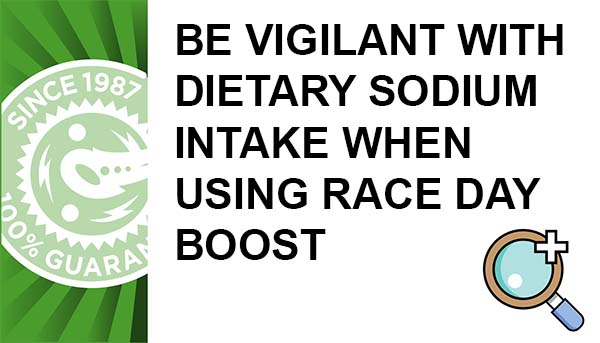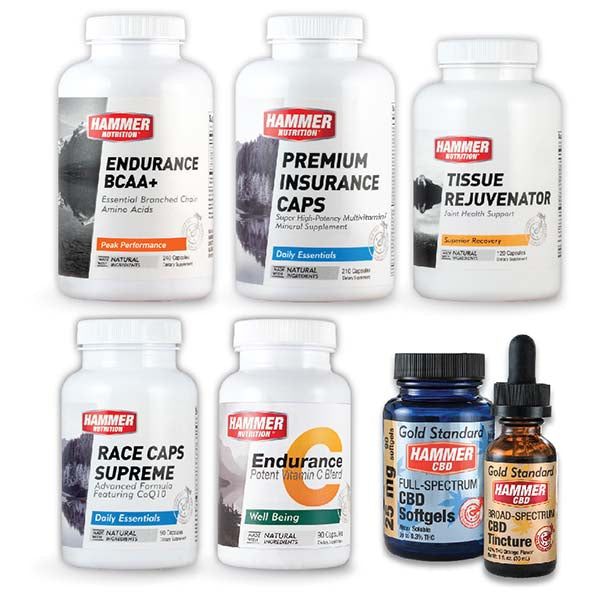L-carnitine is an amino acid that performs three very important functions that enhance athletic performance:
- L-carnitine is THE nutrient, the "ferry" so to speak, that shuttles fatty acids from the blood into the mitochondria, the energy producing "furnaces" in the cells, so that the fatty acids can be used as energy. If you want to use fat as a fuel as efficiently and effectively as possible, you need l-carnitine.
- L-carnitine also helps improve endurance by inhibiting the build-up of lactic acid, one of the primary causes of fatigue.
- L-carnitine has also been shown to reduce the accumulation of metabolic wastes during exercise. This helps increase workload output during exercise and enhancing recovery post-exercise.
Essential for athletic performance, heart health, and more
L-carnitine is a natural substance found in food. However, it is not considered an essential nutrient because the body can make it from the amino acids lysine and methionine. L-carnitine is the nutrient that transports fatty acids to the mitochondria for use as a fuel source and research shows that muscle carnitine levels are rapidly depleted during exercise, even moderate exercise. A number of published studies on athletes have shown that l-carnitine supplementation supports exercise performance. Athletes need more carnitine than they are capable of producing endogenously (inside the body). L-carnitine may be particularly important during periods of intense exercise as it may help to reduce post-exercise lactic acid accumulation and may increase maximal work output. It may also preserve muscle glycogen levels during workouts. As reported in the majority of studies, an increase in maximal oxygen consumption and a lowering of the respiratory quotient indicate that dietary l-carnitine has the potential to stimulate lipid metabolism (e.g. the utilization of fatty acids for fuel). Treatment with l-carnitine has also been shown to induce a significant post-exercise decrease in plasma lactate, which is formed and used continuously under fully aerobic conditions. Data from preliminary studies have indicated that l-carnitine supplementation can attenuate the deleterious effects of hypoxic (low oxygen) training and speed up recovery from exercise stress. Recent data have indicated that l-carnitine plays a decisive role in the prevention of cellular damage and favorably affects recovery from exercise stress. [1-7] Additionally, among its other benefits for brain, body composition, and mitochondrial health, l-carnitine is essential for normal heart function. [8, 9]
Recent study poses questions
Recently, there has been some negative press on l-carnitine in the news. In a nutshell, the results of this study, published online in the journal Nature Medicine, suggest that orally dosed l-carnitine is metabolized by intestinal bacteria to produce a substance called trimethylamine (TMA). TMA is possibly further metabolized into trimethylamine-N-oxide (TMAO). It is theorized that TMAO prevents of excess cholesterol from being excreted, thus allowing it to infiltrate artery walls, which is being studied as a possible culprit for increased risk of cardiovascular disease. Sounds a bit scary, doesn't it? But does that mean that l-carnitine supplementation puts you at risk?
Let's take a closer look at l-carnitine in general, and this recent study and its implications. First, however, it's important to keep in mind the axiom, 'If a little is good, a lot is not necessarily better.' Even basic substances required for life can be overdosed or underdosed, contributing to harmful life-threatening consequences. For example:
- Water depletion/dehydration can kill you, but too much water ("water Intoxication") is also lethal.
- Too little sodium is known as hyponatremia, a life-threatening emergency. Too much sodium results in hypernatremia, which also has potentially fatal consequences.
- Too much sugar or carbohydrates has been associated with diabetic issues, yet when the blood glucose turnover is excessive, consuming carbohydrates during exercise is safe and recommended.
So what does this particular study mean for me?
While this study is certainly intriguing, it's important to keep in mind that the study subjects (both humans and mice) were given "chronic" amounts of l-carnitine. While we do not know how much was given to these test subjects, previous research done on humans suggests that a very large amount of l-carnitine (6 grams total/day) is required for significant increases of plasma TMAO. Other dosages administered three times daily (a total of 0.0g, 1.5g, and 3g total per day) showed no change in plasma increases of TMAO. REFERENCE: Bain MA, Milne RW, Evans AM. J Clin Pharmacol. 2006 Oct;46(10):1163-70. Disposition and metabolite kinetics of oral L-carnitine in humans. Sansom Institute, School of Pharmacy and Medical Sciences, University of South Australia, Adelaide, SA 5000, Australia.
Conclusion
Athletes can safely consume l-carnitine in supplement form to justify replacement. If you are consuming supplemental l-carnitine, we recommend keeping your totals in the range of 2000 mg (2g) per day. A non-athlete who consumes large amounts of meats that contain l-carnitine does not need to supplement this substance. Animal meat not only generates bodily carnitine, it also generates a protein structure that drives weight gain, growth factors, and plaque formation. If not derived from naturally raised grass-fed animals, there are other harmful substances found in meats that over time may prove harmful to health. Overall, we recommend not overconsuming substances from the animal kingdom that drive cholesterol accumulation on artery walls.
L-carnitine in Hammer Nutrition products:
 Mito Caps - 125 mg/capsule
Mito Caps - 125 mg/capsule Perpetuem - 25 mg/scoop
Perpetuem - 25 mg/scoop Perpetuem Solids - 6 mg/tablet
Perpetuem Solids - 6 mg/tablet Sustained Energy - 16.6 mg/scoop
Sustained Energy - 16.6 mg/scoopL-carnitine levels in foods (per 100 grams)
- Lamb - 190 mg
- Beef - 94 - 145 mg
- Pork - 28 mg
- Poultry and Seafood - 1.6 - 6.4 mg
REFERENCES:
1. Brass, E. P., et al. The role of carnitine and carnitine supplementation during exercise in man and in individuals with special needs. J Am Coll Nutr. 17:207-215, 1998.
2. Dragan, I. G., et al. Studies concerning the ergogenic value of protein supply and l-carnitine in elite junior cyclists. Physiologie. 25(3):129-132, 1988.
3. Cerretelli, P., et al. L-carnitine supplementation in humans. The effects on physical performance. Int J Sports Med. 11(1):1-14, 1990.
4. Karlic, H., et al. Supplementation of l-carnitine in athletes: does it make sense? Nutrition. 20(7-8):709-715, 2004.
5. Lancha, A., et al. Effect of aspartate, asparagine, and carnitine supplementation in the diet and metabolism of skeletal muscle during moderate exercise. Physiol Behav. 57(2):367-371, 1995.
6. Lennon, D. L. F., et al. Effects of acute moderate-intensity exercise on carnitine metabolism in men and women. J Applied Physiology. 55:489, 1983.
7. Siliprandi, N., et al. Metabolic changes induced by maximal exercise in human subjects following L-carnitine administration. Biochem Biophys Acta. 1034(1):17-21, 1990.
8. Chao HH, Chen CH, Liu JC, Lin JW, Wong KL, Cheng TH. L-Carnitine attenuates angiotensin II-induced proliferation of cardiac fibroblasts: role of NADPH oxidase inhibition and decreased sphingosine-1-phosphate generation. J Nutr Biochem. 2010 Jul;21(7):580-8.
9. Gomez LA, Heath SH, Hagen TM. Acetyl-L-carnitine supplementation reverses the age-related decline in carnitine palmitoyltransferase 1 (CPT1) activity in interfibrillar mitochondria without changing the L-carnitine content in the rat heart. Mech Ageing Dev. 2012 Feb-Mar;133(2-3):99-106.








